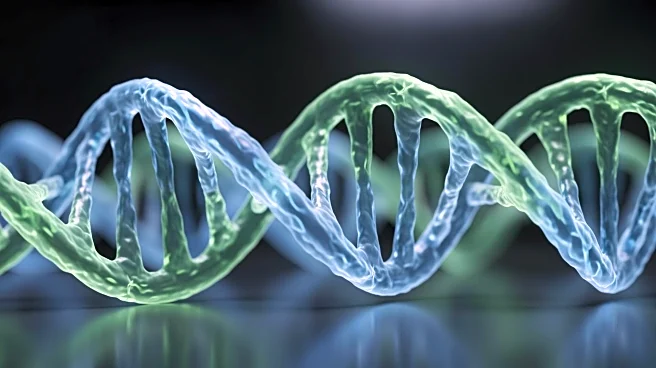What's Happening?
A recent study has investigated the potential of the T cell receptor (TCR) repertoire as a predictive biomarker for immunotherapy response in patients with advanced non-small cell lung cancer (NSCLC). The research focused on sequencing the tumor-infiltrating
and circulating TCRβ/γ repertoire at baseline in patients treated with checkpoint inhibitors. The study found that certain TCR variables, such as low tumor-infiltrating TCRβ evenness, could predict longer progression-free survival (PFS) in patients responding to treatment. Additionally, specific TCRβ genes were associated with treatment response, suggesting that the TCR repertoire could serve as a baseline biomarker for predicting immunotherapy outcomes.
Why It's Important?
The findings of this study are significant as they offer a potential method for improving the prediction of immunotherapy responses in NSCLC patients, which could lead to more personalized treatment plans. Immunotherapy has become a standard treatment for advanced NSCLC, but the response rate remains low, and reliable predictive biomarkers are lacking. By identifying TCR repertoire dynamics as a potential biomarker, healthcare providers could better determine which patients are likely to benefit from immunotherapy, thereby optimizing treatment strategies and potentially improving patient outcomes.
What's Next?
Further research is needed to validate these findings in larger and more diverse patient populations. The study suggests that combining tumor-infiltrating and circulating TCR variables into predictive signatures could enhance the accuracy of response predictions. Additionally, exploring minimally invasive circulating biomarkers could facilitate their implementation in clinical practice, especially in cases where tumor biopsies may not capture intratumoral heterogeneity. Continued investigation into the TCR repertoire's role in immunotherapy response could lead to more effective and targeted cancer treatments.
Beyond the Headlines
The study highlights the complexity of the immune system's role in cancer treatment and the potential for TCR repertoire analysis to provide insights into the mechanisms behind antitumor responses. Understanding the clonal expansion of specific T cell clones and their interaction with tumor neoantigens could offer deeper insights into the immune system's ability to combat cancer. This research underscores the importance of personalized medicine and the need for innovative approaches to cancer treatment.















